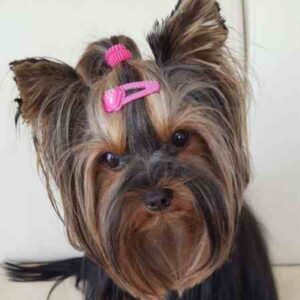In the enchanting world of dog breeds, few possess the charm, elegance, and charisma of the Yorkshire Terrier, lovingly known as the Yorkie. These pocket-sized companions have captured hearts worldwide, but what truly sets them apart are their diverse sizes and the stringent standards that govern their breed. Delve into this captivating guide as we unveil the petite perfection of Yorkie sizes and standards, exploring the range of these enchanting canines, their remarkable characteristics, and the quintessential elegance that defines the breed. Prepare to be charmed by the allure of the Yorkshire Terrier in all its splendid sizes and standards.
The Kennel Club’s Standards:
The Kennel Club, the UK’s foremost authority on dog breeds, provides specific guidelines for Yorkshire Terriers, ensuring that they adhere to established breed standards. These standards are essential for maintaining the integrity of the breed, both in terms of appearance and temperament.
Yorkie Size Variations:
Toy Yorkshire Terrier: The smallest size category for Yorkies, Toy Yorkshire Terriers weigh up to 4 pounds (1.81 kg) as adults. They stand around 7 to 8 inches (18 to 20 cm) tall at the shoulder. Toy Yorkies are tiny and delicate, making them well-suited for indoor living and companionship.
Miniature Yorkshire Terrier: Miniature Yorkies are slightly larger than their Toy counterparts but still small. They typically weigh between 4 to 7 pounds (1.81 to 3.18 kg) and measure around 7 to 8 inches (18 to 20 cm) in height at the shoulder. These are still compact and portable dogs, ideal for those looking for a small companion.
Standard Yorkshire Terrier: The Standard Yorkie is a bit larger than the Toy and Miniature varieties. They usually weigh between 7 to 15 pounds (3.18 to 6.81 kg) and stand around 7 to 8 inches (18 to 20 cm) tall at the shoulder. This is the size category recognized by the Kennel Club in the UK.
Breed Characteristics:
Appearance: Yorkshire Terriers have a distinctive appearance, characterized by their fine, silky, and straight coat. The coat is a combination of blue and tan, with a blue-gray body and rich tan markings on the head, chest, and legs. They have a small, compact body with a level back and a fine-boned structure.
Temperament: Yorkies are known for their feisty and lively personalities. They are intelligent, confident, and often exhibit a strong-willed nature. Despite their small size, they can be bold and protective, making them excellent watchdogs. They are also affectionate and form strong bonds with their owners.
History and Origins:
Yorkshire Terriers originated in the mid-19th century in the county of Yorkshire, England, hence their name. They were initially bred for hunting small vermin, such as rats, in mines and textile mills. Over time, breeders refined their size and appearance to create the delightful companion dogs we know today.
Grooming and Care:
Regardless of the size, Yorkshire Terriers require regular grooming to maintain their signature silky coats. Daily brushing is necessary to prevent matting, and occasional professional grooming is recommended. Their small size makes them suitable for apartment living, but they still enjoy daily walks and playtime to expend their energy.
In the UK, Yorkshire Terriers are cherished for their distinct charm, and they have earned their place as one of the most popular small breeds. Understanding the different sizes and breed standards within this delightful breed is essential when considering a Yorkie as your next furry companion. Whether you opt for a Toy, Miniature, or Standard Yorkshire Terrier, you can expect a loyal, vivacious, and affectionate companion that will fill your life with joy and love.





